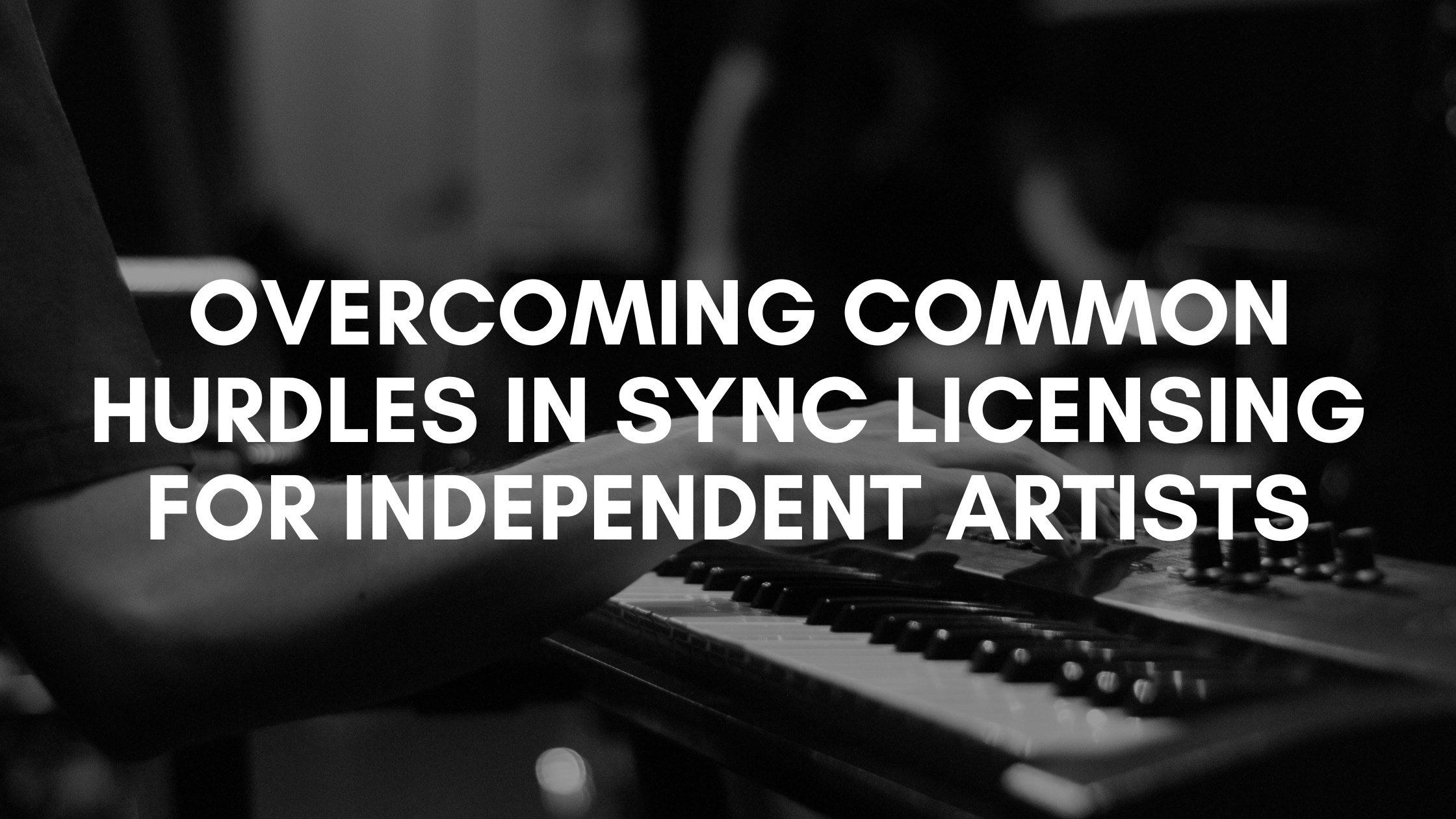Table of Contents
- The Basics of Sync Licensing
- Common Hurdles in Sync Licensing
- Real-Life Insights
- Additional Resources
- A wrap 🌯
Sync licensing, a lucrative avenue for musicians, has grown in importance as the demand for music in TV shows, movies, and ads continues to rise. For independent artists, landing a sync deal can provide significant exposure and income. This blog post aims to help independent artists navigate the common challenges of sync licensing, ultimately turning negotiations into paydays.
The Basics of Sync Licensing
What is Sync Licensing?
Sync licensing refers to the use of music in synchronization with visual media. This could include placing your song in a TV show, movie, advertisement, or even a video game. These opportunities not only provide a platform for your music to be heard by a wider audience but also offer substantial financial benefits.
Examples of Sync Licensing Opportunities
- TV Shows: Your song playing during a pivotal scene.
- Movies: Soundtracks featuring independent artists.
- Advertisements: Commercials needing catchy, relatable tunes.
- Video Games: Background scores enhancing gaming experiences.
Common Hurdles in Sync Licensing
Navigating Negotiations
Contract negotiations can be intimidating, especially for those new to the industry. Understanding various contractual terms is often challenging for artists, who may struggle with legal jargon and complex clauses. Artists must familiarize themselves with terms like exclusivity clauses, royalty splits, and usage rights to ensure they make informed decisions. Seeking legal advice or consulting with experienced industry professionals can provide valuable insights and help artists navigate these negotiations more effectively.
Common Contractual Terms and Their Meanings
- Master Use License: Permission to use the recorded version of your song.
- Synchronization License: Authorization to use the composition itself.
- Exclusivity Clauses: Determines whether your music can be licensed to other projects simultaneously.
Understanding Rights and Royalties
Managing rights and ensuring proper royalty collection are critical. Sync deals typically involve several rights, including mechanical, performance, and synchronization rights. Mechanical rights pertain to the reproduction of your music, generating royalties whenever your song is copied on physical or digital media. Performance rights are relevant when your music is performed publicly, such as on TV or radio, and are collected by Performance Rights Organizations (PROs). Synchronization rights involve a one-time fee for the use of your music in sync with visual content, such as in TV shows or movies.
Challenges in Royalty Collection
Ensuring you get paid the correct amount can be tricky. Mismanagement or lack of understanding can lead to significant revenue losses. Complexity and variety of royalty streams require careful tracking, as each type of right has its own collection mechanisms and timelines. Inaccurate reporting by licensees can lead to underpayments, so it’s essential to have systems in place to verify usage and payments. Leveraging technology and seeking legal assistance can help navigate these challenges, ensuring accurate royalty collection and fair compensation.
Practical Tips for Overcoming These Hurdles
Prepare for Negotiations
Knowledge is power. Understanding contract basics can make a significant difference. Familiarize yourself with legal jargon and contract structures to better understand agreements. Whenever possible, consult with a music industry lawyer to review agreements and ensure your interests are protected.
Leverage Technology for Rights Management
Several tools can help manage music rights and track royalties efficiently. Music Gateway: A platform that simplifies the licensing process and rights management, making it easier to handle your music rights. Songtrust: Helps artists register their music and ensure all royalties are collected, streamlining the rights management process.
Build Relationships and Network
Networking is crucial in securing sync deals. Attend Industry Events: Engage with professionals at music conferences and sync summits to build connections. Join Organizations: Groups like the Guild of Music Supervisors can provide valuable connections and resources, enhancing your opportunities for sync deals.

Real-Life Insights
Independent Artist Success Story
Take the example of Reagan Ramm, who utilized networking and technology to secure multiple sync deals, demonstrating how independent artists can successfully navigate the sync licensing landscape. Reagan’s journey began with a strategic approach to networking. By attending industry events such as the Sync Summit and Music Biz, he connected with key players in the sync licensing world. Through these connections, Reagan secured placements in three television shows and two commercials within a year, earning over $25,000 in sync fees.
Reagan also leveraged technology to streamline his rights management and royalty collection. Using platforms like Songtrust and Music Gateway, he registered his music efficiently and tracked its usage across various media. This proactive management resulted in a 20% increase in royalty collections over a six-month period. Reagan’s ability to combine networking with advanced rights management tools allowed him to overcome the typical hurdles of sync licensing, leading to significant financial gains and broader exposure for his music.
Expert Tips
Industry professionals emphasize the importance of persistence and relationship-building. According to Randy Chertkow and Jason Feehan, authors of “The Indie Band Survival Guide,” having someone represent you can add credibility and help during tough negotiations. They suggest that a manager or agent can negotiate on your behalf, allowing you to maintain positive relationships with potential clients. Moreover, these professionals recommend consistently engaging with the industry through networking and staying informed about best practices to enhance your chances of securing sync deals.
Additional Resources
Where to Learn More
- Websites: ASCAP (American Society of Composers, Authors, and Publishers), BMI (Broadcast Music, Inc.).
- Books: “All You Need to Know About the Music Business: 10th Edition” by Donald S. Passman.
- Courses: Online courses on platforms like Coursera focused on music business and rights management.
Finding Legal Assistance
- Legal Clinics: Many music schools and universities offer legal clinics that provide free or low-cost legal advice to musicians.
- Organizations: Join groups like Volunteer Lawyers for the Arts.
A wrap 🌯
In summary, while sync licensing can present challenges, understanding the basics, preparing for negotiations, leveraging technology, and building strong networks can help independent artists turn opportunities into significant paydays. Stay proactive, educate yourself, and utilize available resources to navigate the evolving landscape of the music industry successfully.


